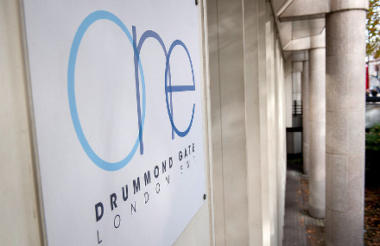A trustee was removed from a charity that had unexplained transactions totalling over £60,000, an inquiry report from the Charity Commission has shown.
The charity The Catalyst Trust, which has since been removed from the register of charities, had objects to give grants and financial assistance to other charities.
But a Commission investigation found that over a four-year period the charity had an income of more than £70,000 but less than £200 was genuine charitable expenditure.
The Charity Commission concluded that trustees of the Catalyst Trust were responsible for misconduct and mismanagement in the administration of the charity.
The Commission has permanently removed the trustee primarily responsible for the charity’s management and administration, permanently preventing the individual from acting as a trustee in the management of any other charity.
An inquiry was opened into the charity in June 2014 after a books and records inspection of the charity, which followed a complaint from a member of the public, found unexplained transactions totalling more than £60,000. This raised concerns about the accuracy of the accounts because the charity had never declared an income of more than £25,000 in its annual return.
The inquiry found that this dominant trustee was operating the charity and making decisions on its behalf, with minimal input from other trustees.
It established that out of an income of approximately £71,000 between 2009 and 2013 only £2,217 was described by the trustees as direct charitable expenditure. However, the inquiry established that £2,050 of this amount was paid to a private company to develop a software project.
The software project was found to not be charitable, and was a misapplication of charitable funds.
The inquiry also found that “investments and loans had been made by the charity to companies in which the ‘dominant trustee’ had a personal interest or connection”. The Commission said it was clear that potential conflicts of interests had not been identified or adequately managed by the trustees.
It also established that the charity did not have a regular income stream, and that it failed to “exercise reasonable care and prudence to protect the charity’s interests” in respect to a loan that was taken out on part of its property.
‘Evidence of poor governance and financial management’
The Commission concluded that there had been “misconduct and mismanagement in the administration of the charity as there was evidence of both poor governance and poor financial management”.
It said that the inquiry found that the charity was “not being operated in furtherance of its charitable objectives, the trustees had failed to manage conflicts of interest and had failed to comply with their legal duty as trustees”.
Following the regulator’s decision to remove this dominant trustee, whose “continual presence in the charity put the charity’s assets at serious risk and whose actions had resulted in serious losses to the charity”, the trustees of the charity decided to close it and apply the remainder of its funds to a charity with similar purposes. As a result, the charity was removed from the register on 10 November 2016.
Harvey Grenville, head of investigations and enforcement at the Charity Commission, said: “This inquiry was hindered by the failure of the ‘dominant trustee’ to fully cooperate with the Commission. Despite this attempt to frustrate our investigation we have been able to take strong action and remove this individual to protect charities from abuse.
“Trustees must act collectively together and avoid one individual taking sole, or inappropriate control of a charity. In this case the trustees did not manage or identify conflicts of interests and allowed improper loans and investments to be made by one individual.”
Related articles











